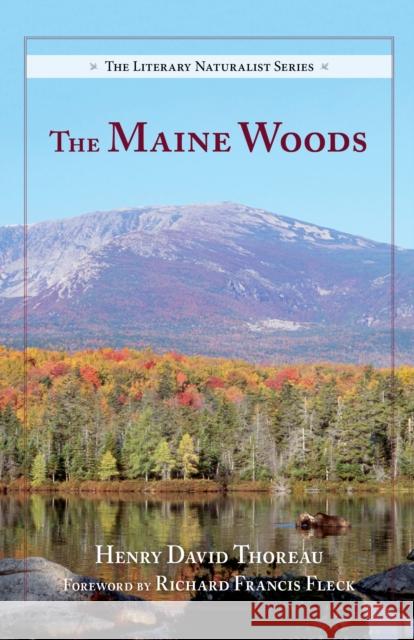The Maine Woods » książka
The Maine Woods
ISBN-13: 9780882409597 / Angielski / Miękka / 2014 / 244 str.
The Maine Woods
ISBN-13: 9780882409597 / Angielski / Miękka / 2014 / 244 str.
(netto: 69,69 VAT: 5%)
Najniższa cena z 30 dni: 72,18
ok. 16-18 dni roboczych.
Darmowa dostawa!
Posthumously published in 1864, "The Maine Woods" depicts Henry David Thoreau s experiences in the forests of Maine, and expands on the author s transcendental theories on the relation of humanity to Nature. On Mount Katahdin, he faces a primal, untamed Nature. Katahdin is a place not even scarred by man, but it was a specimen of what God saw fit to make this world. In Maine he comes in contact with rocks, trees, wind and solid earth as though he were witness to the creation itself. Of equal importance, "The Maine Woods" depicts Thoreau s contact with the American Indians and depicts his tribal education of learning the language, customs, and mores of the Penobscot people. Thoreau attempts to learn and speak the Abenaki language and becomes fascinated with its direct translation of natural phenomena as in the word "sebamook" a river estuarythat never loses is water despite having an outlet because it also has an inlet." The Maine Woods" illustrates the author s deeper understanding of the complexities of the primal wilderness of uplifted rocky summits in Maine and provides the reader with the pungent aroma of balsam firs, black spruce, mosses, and ferns as only Thoreau could. This new, redesigned edition features an insightful foreword by Thoreau scholar Richard Francis Fleck.
Redesigned edition featuring an insightful foreword by Thoreau scholar Richard Francis Fleck. Fleck is a well-respected authority on Thoreau and the author of many books including "Henry Thoreau and John Muir Among the Indians." Henry David Thoreau (July 12, 1817 May 6, 1862) was an American author, poet, philosopher, abolitionist, naturalist, tax resister, development critic, surveyor, historian, and leading transcendentalist. This book was first published in 1864 (composed partly of articles he had written earlier for periodicals) and still in print, is an insightful reporter s picture of a rugged wilderness the moment before being irrevocably altered by armies of loggers. Today the virgin forest seen by Thoreau is gone; trees have been cut, regrown, and harvested again. But modern travelers hikers, campers, hunters, fishers, canoeists or back road wanderers will still find, as Thoreau did, a land more grim and wild than you had anticipated. It s also pin-drop tranquil, teeming with wildlife and, in places, challenging to reach. (NYTimes) Following Thoreau into the Maine Woods is hardly a new idea, but it is becoming easier. The Thoreau-Wabanaki Trail was inaugurated, delineating and celebrating Thoreau s passage on routes that Penobscot Indians had used for thousands of years. (NYTimes) Nature tourism is a $37 billion annual industry in the United States (Outdoor Industry Association). "











